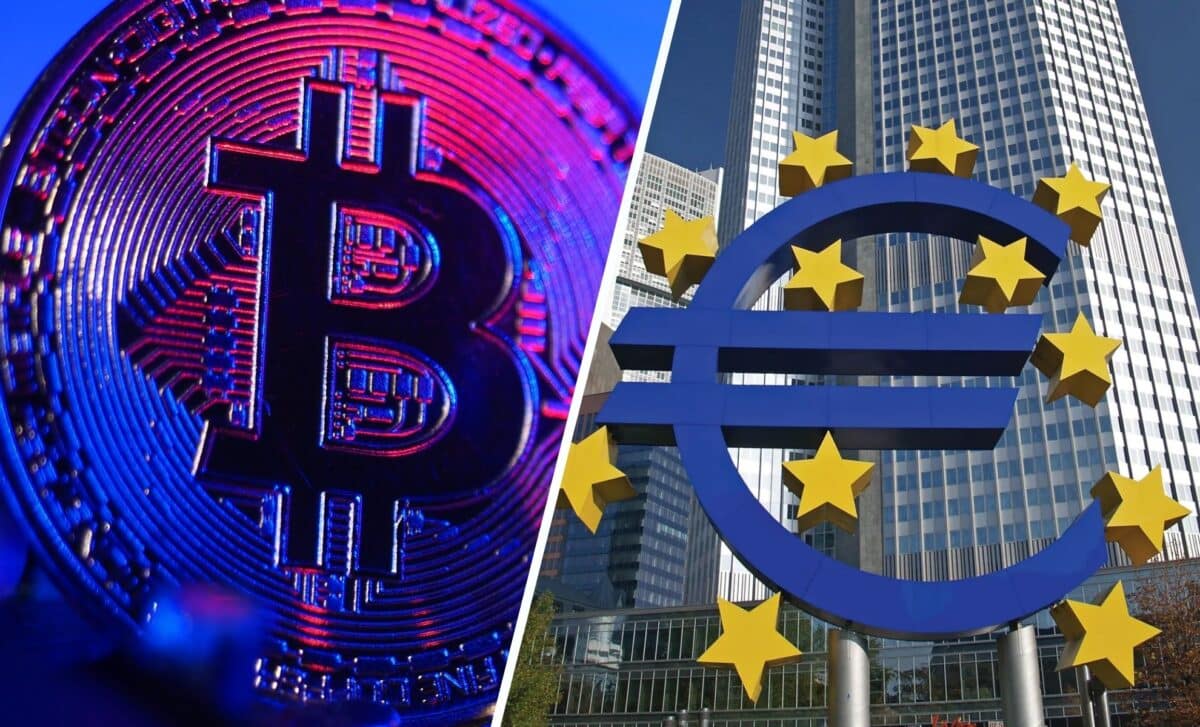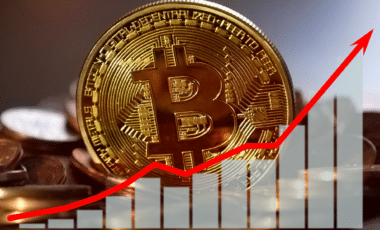In a digital age where cryptocurrencies continue to stir debate, the reception to a recent European Central Bank (ECB) blog post critiquing Bitcoin has been notably contentious. As of today, Bitcoin’s valuation stands at approximately 47,000 euros, yet the discourse surrounding its legitimacy and future as a digital asset remains as divided as ever.
Published on 22 February 2024, the ECB’s post, titled “ETF approval for bitcoin – the naked emperor’s new clothes,” penned by Ulrich Bindseil and Jürgen Schaaf, dives deep into the controversies and challenges facing Bitcoin. The report comes in the wake of the U.S. Securities and Exchange Commission’s (SEC) approval of spot exchange-traded funds (ETFs) for Bitcoin, a decision that has reignited discussions about the cryptocurrency’s viability and impact.
The ECB’s Stance is Clear and Critical Against Bitcoin
It asserts that Bitcoin has not only failed to fulfill its promise as a global decentralized digital currency but also raises significant concerns regarding its use for legitimate financial activities. The authors highlight the recent ETF approval as insufficient to alter Bitcoin’s inherent issues, including its unsuitability as a means of payment or a reliable investment. Furthermore, the ECB points to the potential societal harms of Bitcoin’s volatility, including environmental damage and the redistribution of wealth from the uninformed to the more savvy investors.
The blog post details several key arguments against Bitcoin. It notes the cryptocurrency’s limited use in legitimate transactions, its inefficiency and high costs, and the lack of success in regulatory initiatives aimed at curbing its use for criminal activities. The post also criticizes Bitcoin as an investment, pointing out its inability to generate cash flow or dividends and its significant environmental impact due to the energy-intensive mining process.
Adding to the complexity, the ECB article revisits the narrative of Bitcoin as a speculative bubble, fueled by temporary factors like the anticipation of changes in the U.S. Federal Reserve’s interest rate policy and the halving of Bitcoin mining rewards. The authors argue that despite these short-term price inflations, Bitcoin’s value is ultimately unsustainable in the long run.
The debate over Bitcoin’s future is further complicated by its role in financing illegal activities, with the ECB highlighting the cryptocurrency’s use in money laundering and ransomware attacks. This underscores the broader challenge facing regulators and authorities in effectively addressing the risks associated with Bitcoin and other cryptocurrencies.
Bitcoin Defies ECB Criticism: Resilient Performance Continues Unfazed
Despite recent critiques from the European Central Bank (ECB), Bitcoin continues to demonstrate resilience and remains a dominant force in the cryptocurrency market. The ECB’s criticisms have not hindered Bitcoin’s performance, as evidenced by a notable 0.4% increase in its value over the past 24 hours. Bitcoin’s market capitalization has also maintained a robust position, exceeding $1 trillion, reinforcing its status as one of the most coveted digital assets globally.
This is not the first instance of the ECB expressing strong disapproval of Bitcoin. Back in November 2022, voices within the ECB claimed that Bitcoin was on the ‘path to irrelevance’ and in its ‘last breath.’ Despite such predictions, Bitcoin’s ongoing success suggests that it does not rely on the ECB’s endorsement for its existence or prosperity.
Bitcoin’s ability to thrive despite opposition underscores its significance for many in the crypto community. It is viewed not just as a digital asset but as a major innovation and a unique financial opportunity. The cryptocurrency’s resiliency and market performance further emphasize that Bitcoin’s existence and trajectory are not contingent on the approval of traditional financial institutions, such as the ECB.
In response to the ECB’s critiques, ClimateTech investor Daniel Batten remarked on X, “Keep the FUD coming, ECB. There are over 400 million people globally who have been vaccinated against it now, growing exponentially.” Batten’s comment reflects skepticism toward the ECB’s negative sentiment and suggests that Bitcoin’s surge is a response to the fear, uncertainty, and doubt (FUD) spread by the ECB.
This is bullish.
After ECB published “Bitcoin’s last stand” – Bitcoin has risen 197%
Keep the FUD coming ECB.
There are over 400Million people globally who have been vaccinated against it now, growing exponentially. pic.twitter.com/QNypWEFYAd
— Daniel Batten (@DSBatten) February 22, 2024
Critiquing the ECB’s stance, Alexandre ‘unhosted’ Stachtchenko, an expert and speaker on Bitcoin and Web 3, associated with Blockchain Partners and Adan Association, also took to the platform and questioned the validity of writing about Bitcoin if it’s not considered a currency. He criticized the ECB for diverting from its mandate and highlighted the lack of sources in the ECB’s article, expressing concern about the use of public funds to attack a specific asset. This skepticism aligns with the broader sentiment that Bitcoin’s success is a response to perceived shortcomings in traditional currencies.
Additionally, CyberHornets criticized the Euro’s failure to become a global stable currency, asserting, “The recent Tweets of the ECB doesn’t change the fact that the Euro is a fraud.” These tweets align with the broader sentiment that Bitcoin’s success is not only fueled by market dynamics but is also a response to the perceived shortcomings of traditional currencies like the Euro.
The #Euro has failed to become a global stable currency, instead falling victim to fraud and manipulation.
The recent Tweets of the ECB doesn’t change the fact that the Euro is a fraud.
— Cyber Hornets 🇨🇭⚡🐝 (@CyberHornetsBTC) February 22, 2024
In the midst of ongoing debates and criticisms, Bitcoin continues to represent a dynamic force within the financial landscape, providing users with an alternative and decentralized approach to wealth management and investment.
There’s nothing correct in this rag. Because yes it’s a rag, there are no other words. But not just any rag, a dangerous rag.
🧵👇
I. Let’s start by saying that the mandate of the ECB is to manage price stability. Writing nonsense about Bitcoin does not seem to me to be part of… pic.twitter.com/eNKZTIzLFG
— Alexandre ‘unhosted’ Stachtchenko (@StachAlex) February 22, 2024










Without a strict regulatory framework around stablecoins , follow-up of their acceptable value and bubble detectors by neutral independent regulators, reduction of it’s ecological sustainability, investing in Bitcoins and copycats stays a step in a black hole.